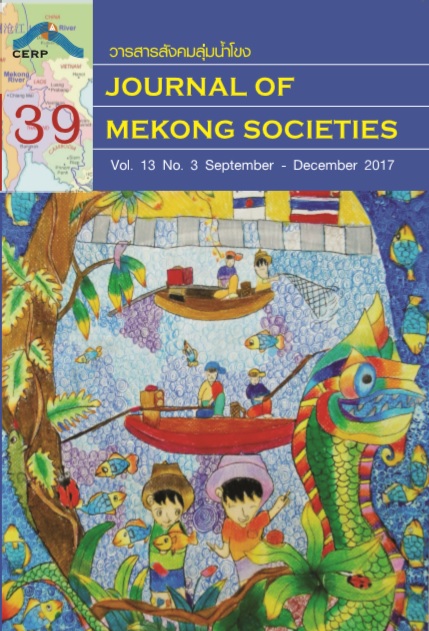Chuchok in the Isan Version of the Vessantara Jataka: Discourse, Power and Marginalization
Main Article Content
Abstract
This article analyzes the role of Chuchok, the Brahmin, in the Isan version of the Vessantara Jataka in terms of cultural communication, discourse, power and the process that defines him as a marginalized man. It also analyzes Chuchok’s discourse in responding to conversations and negotiation. The analysis is based on the discourse and communication studies framework. The findings show that cultural discourse and cultural communication are created from a power of some kind or by an agent. Chuchok was the receiver of an action and consequently got into a situation where he found himself a marginalized man. Chucok’s identity was defined by society and he recognized it through self-awareness and self-acceptance, which are both monitored and controlled by cultural factors and the powers of defilement, gender, social class, and religion. Being a marginalized man is not always a permanent condition, as Chuchok demonstrated that he was trying to create a negotiating space in two different dimensions: as a marginalized man and a poor old man. As a marginalized man whose identity was shaped by discourse and power, Chuchok become nothing and was always rejected, viewed with bias, and powerless when responding and negotiating.


